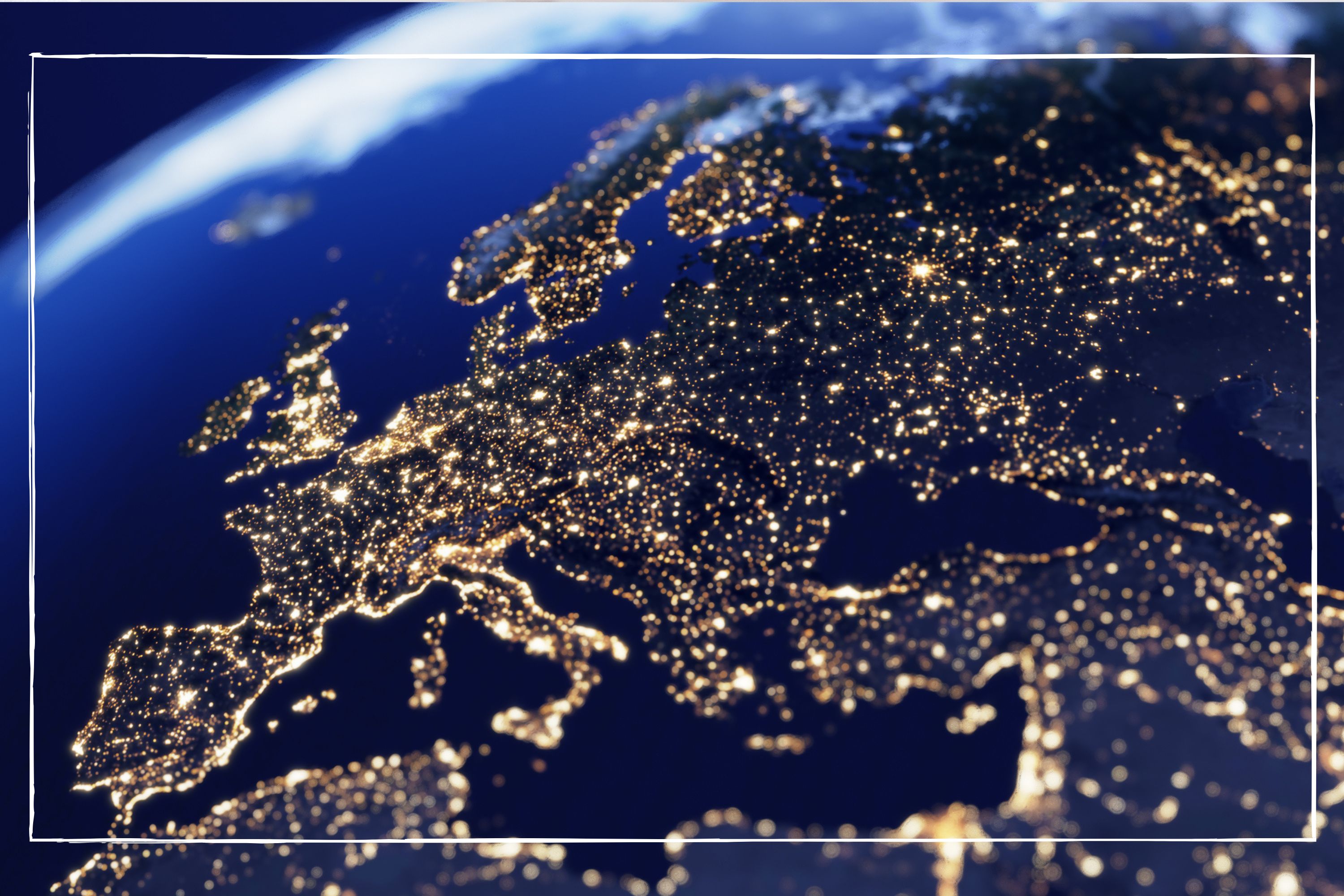Are energy prices rising in Europe and what are other governments doing to help?
With energy prices still sky-high in this country, are energy prices rising in Europe too?


Parenting advice, hot topics, best buys and family finance tips delivered straight to your inbox.
You are now subscribed
Your newsletter sign-up was successful
Are energy prices rising in Europe in the same way they are in the UK? That's an important question to answer as families in the UK are worrying about how much their energy bills will cost, especially when the new energy price cap comes into effect, despite an energy bill freeze being introduced.
Energy costs have been shooting up for households across Europe since we came out of lockdown. The invasion of Ukraine in February has also led to worries over gas and oil supplies that have caused the wholesale energy prices to spiral even higher.
However, while the UK may be hit worse by rising prices, the issue isn't restricted to the UK. Countries across Europe are also facing soaring costs with governments having to make decision on how to help households cope with inflated bills, like the UK government has done by introducing the £400 energy rebate.
Personal finance analyst at Hargreaves Lansdown Sarah Coles says, “Energy prices are rising faster in the UK than they are elsewhere in Europe. The wholesale gas price is actually higher in Europe, but we’re feeling the pain more in the UK for a number of reasons. Some of it comes down to oddities in the UK’s energy system, but some of it is due to the fact that other governments have been more prepared to step in to protect consumers.
"The UK suffers from a reliance on gas, which has seen prices surge since the invasion of Ukraine: we even use gas to produce 40% of our electricity. Elsewhere in Europe, there’s more focus on nuclear, electricity and renewables rather than gas. The UK also faces the problem of a lack of available storage, so while Europe is able to build a gas buffer for winter to keep prices down, the UK can’t”.
Are energy prices rising in Europe and why are they so high?
While it might feel like we’re the only ones suffering from sky-high energy bills, energy prices are rising across Europe.
Research from the leading German bank Deutsche Bank shows that across the 19 countries in the eurozone (those countries in the European Union that have adopted the euro as their currency), gas and electricity prices are rising by around 40% this year, whereas in the UK the energy price cap is likely to increase by double that figure in October.
Parenting advice, hot topics, best buys and family finance tips delivered straight to your inbox.
There are a combination of factors behind energy prices going up. The wholesale gas price, which is how much energy suppliers pay for the gas they then sell on to their customers, started to go up last year. This was due to a surge in energy usage as the world re-opened post lockdown.
The invasion of Ukraine has further fuelled price hikes. Around 40% of Europe’s gas supply comes from Russia, so if alternative supplies have to be found, ithe demand on those alternatives increases, which in turn drives up the cost.
Head of Relationship Development at Cornwall Insight Robert Buckley says: “Rising wholesale energy prices have been caused by volatility in the market which has been triggered by a combination of national and international price impacts. This includes disruption to energy supply caused by geopolitical instability, most recently with Russia’s invasion of the Ukraine.
"Other factors including strong competition for liquefied Natural Gas deliveries between Europe and Asia pushing up prices, a tightening of EU carbon market rules incentivising power generators to switch from coal to gas and an increase in demand for natural gas as countries recover from the pandemic have also contributed to the rise”.
Which European country has the highest energy prices?
Households in Germany pay more for their electricity than any other country in the EU, according to a report from Reuters, with their gas bills expected to rise by an average of more than 63% this year.
And according to a report on Europe’s leading international news channel Euronews – electricity wholesale prices went up in the first three months of this year by a whopping 411% in Spain and Portugal, 343% in Greece and 336% in France, and 318% in Italy compared with the same period in 2021.
What are European countries doing to limit passing these huge increases on to customers?
Some European countries are trying to protect households from huge energy bill increases by introducing one off state funded payments – in a similar way to the £400 energy bill discount that UK households will start to receive from October. Here’s what some European countries are doing to help cash strapped households.
Germany
The German government is spending over €15 billion (£12 billion) towards helping cut households energy bills including a one off €300 (£253) payment along with extra child support and discounts on public transport.
The government also announced other measures to reduce its energy demand, including dimming streetlights, turning off public fountains and reducing the temperature in public swimming pools.
Italy
The Italian government is putting €14 billion (the equivalent of £12 billion) into reducing fuel costs for households including keeping energy bills at 2021 levels and making a one off €200 (£169) payment to those earning €35,000 or £29,600 a year or less.
Spain
A price cap across Spain and Portugal has been introduced with the aim of halving households bills for the next year. There’s also a cut in the amount of VAT paid on energy bills which goes down from 21% to 10% and a windfall tax introduced on energy companies to raise £2.5 billion to fund the tax cuts.
France
In France, the government has forced the state-owned energy supplier to cap the wholesale price and is introducing a flat payment of around £84 to low-income households receiving energy vouchers.
Sarah Coles says, “In France, electricity price increases for consumers have been capped at 4% until the end of 2022. To ensure this happens EDF (owned 80% by the state) has been ordered to sell cheap nuclear power to its competitors.
“Meanwhile, The Netherlands have also cut energy taxes; Italy and Greece are using energy subsidies; and in Norway, the government currently pays 80% of bills above a particular level”.
The European Commission
The European Commission, which is like an executive government for EU member countries, has been working alongside the International Energy Agency to try and find ways to reduce Europe’s dependency on Russian gas.
It has also worked on energy-saving initiatives which could provide enough natural gas to heat 20 million homes, if adopted by every household across the EU.
The European Commission itself has also publicised how it’s making energy saving changes including switching off heating and cooling systems an hour earlier and upgrading its insulation and lighting systems
If we act in unity, we can master any difficulty 🇪🇺 Across the EU smart ways to save energy are being introduced. And we are leading the way with our Greening Strategy. Learn how small day-to-day changes can bring impressive results 👇 #REPowerEUAugust 22, 2022
